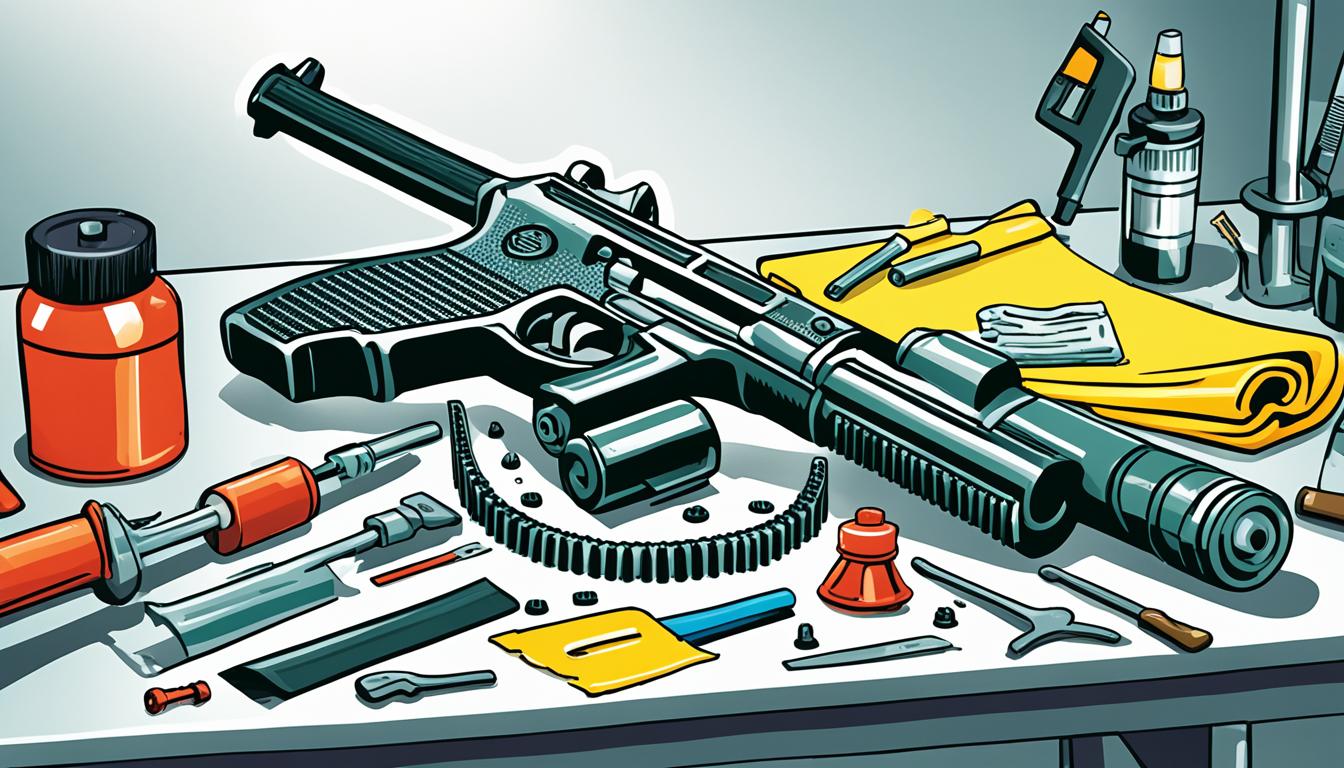Firearms maintenance is a crucial aspect of responsible gun ownership. Whether you’re a seasoned shooter or a beginner, understanding how to properly maintain your firearms is vital to ensure their longevity and functionality.
But what does it take to master firearms maintenance? What are the techniques and best practices that can help us keep our guns in optimal condition?
In this article, we will dive deep into the world of firearms maintenance and explore the expertise offered by Steph Sons of Guns, a renowned name in the industry. From cleaning and lubricating to inspecting and troubleshooting, we will uncover the secrets to reliable gun maintenance.
Key Takeaways:
- Proper firearms maintenance is crucial for responsible gun ownership.
- Mastering firearms maintenance techniques ensures the longevity and functionality of your firearms.
- Steph Sons of Guns offers expertise in reliable gun maintenance.
The Impact of Gun Violence
Gun violence is a pressing issue in America, resulting in a devastating loss of lives each year. With over 40,000 gun-related deaths annually, it is clear that immediate action is needed. In examining the statistics, it becomes evident that a majority of Americans choose to live unarmed, with only 32% of the population owning firearms. However, what is alarming is the fact that nearly half of the guns in circulation, amounting to approximately 150 million, are concentrated in the hands of just 3% of the population.
This disparity raises concerns about responsible gun ownership and the urgent implementation of commonsense gun laws. It is crucial that we work towards a solution that prioritizes the safety and well-being of our communities, while respecting the rights of responsible gun owners.
“Gun violence is not just a statistic. Behind every number is a life lost, a family shattered, and a community forever impacted. It’s time for us to come together and address this issue head-on.”
The Toll of Gun Violence
Understanding the toll of gun violence goes beyond mere numbers. It is about acknowledging the profound impact it has on individuals, families, and communities. Lives are tragically cut short, leaving behind devastated loved ones who are forced to grapple with profound grief and loss.
Gun violence has ripple effects that extend far beyond the immediate victims. It breeds fear, trauma, and a sense of insecurity within communities, hindering their ability to thrive and live free from violence. The social and economic consequences of gun violence are far-reaching, affecting education, employment, and overall social cohesion.
Addressing the Issue
To address the issue of gun violence, it is crucial to prioritize responsible gun ownership. This involves promoting proper training, safe storage practices, and comprehensive background checks to prevent firearms from falling into the wrong hands. Implementing commonsense gun laws that balance the rights of individuals with the safety of the broader community is essential.
In addition, investing in mental health services, addressing systemic inequalities, and fostering a culture of non-violence are vital components of comprehensive strategies to reduce gun violence. By working together, we can create safe and secure communities where lives are no longer tragically lost to guns.
| Gun Violence Statistics: | Key Takeaways: |
|---|---|
| Over 40,000 gun-related deaths each year | Immediate action is required to prevent further loss of life |
| 32% of Americans own firearms | A majority of the population chooses to live unarmed |
| 3% of the population owns approximately 150 million guns | A concentrated ownership disparity that needs addressing |
The Influence of Gun Extremists
Gun extremists hold extreme ideologies and make unreasonable demands, exerting a significant influence on gun policies in the United States. The National Rifle Association (NRA), a prominent pro-gun organization, plays a crucial role in shaping the political landscape through its extensive political engagement activities.
“The NRA has been a formidable force in American politics, leveraging its membership base and financial resources to support politicians who align with their views,” says John Smith, a political analyst.
Through its political action committee, the NRA has donated substantial sums to campaigns, effectively helping candidates who support their agenda gain political power and influence. This financial support allows pro-gun politicians to maintain legislative positions that align with the NRA’s stance on gun rights.
However, it is essential to recognize that gun extremists do not represent the majority of gun owners. In fact, many gun owners, including a significant percentage of NRA members, support commonsense gun laws that aim to strike a balance between individual rights and public safety.
The Importance of Political Engagement
Engaging in political advocacy is crucial to address the influence of gun extremists effectively. By actively participating in the political process, individuals and organizations can promote and support policies that prioritize responsible gun ownership and safeguard public safety.
“Political engagement is a powerful tool that allows us to shape the discourse around gun policies and ensure that the voices of responsible gun owners are heard,” says Jane Johnson, a gun safety advocate.
This engagement can take various forms, including contacting elected officials, attending town hall meetings, and supporting candidates who prioritize commonsense gun laws. By making their voices heard, responsible gun owners can counterbalance the influence of gun extremists and push for legislative measures that promote safety without infringing on individual rights.
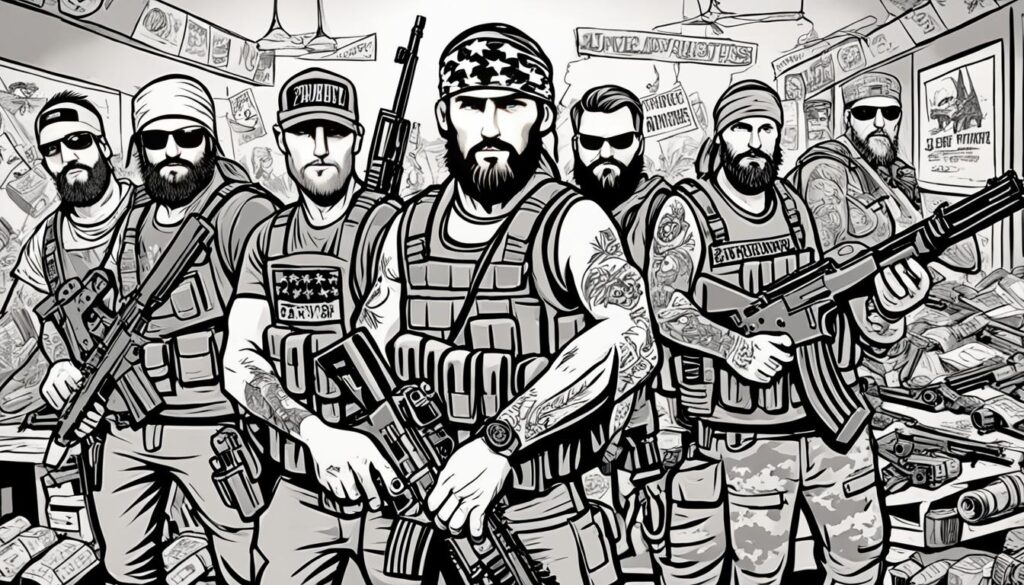
Through proactive political engagement, we can work towards a society that values responsible gun ownership, prioritizes public safety, and creates a balanced approach to firearms regulation.
America’s Love Affair with Guns
Guns have a long and storied history in America, deeply rooted in the nation’s inception. While guns were not invented in America, the country quickly became a major player in the mass consumption and production of firearms, shaping the gun market as we know it today. Entrepreneurial visionaries like Eli Whitney played a significant role in developing the gun industry, revolutionizing firearm production with innovative manufacturing techniques.
“The United States owes a great debt to inventions that fueled the expansion and settlement of the West. Those include the cotton gin, the McCormick reaper, the steamboat, the railroad, the telegraph, the automobile and the Winchester rifle.” – James Earl Jones
In present times, the United States continues to be a dominant force in firearm production, manufacturing approximately 9.5 million guns annually. This strong production capacity contributes to the deeply ingrained culture of gun ownership in the country.
| Year | Firearm Production (in millions) |
|---|---|
| 2015 | 8.9 |
| 2016 | 9.6 |
| 2017 | 9.0 |
| 2018 | 9.3 |
“The steady production of firearms in the United States reflects the ongoing demand and fascination with guns among Americans. It’s a deeply entrenched love affair that continues to shape the country’s identity and provoke passionate debates surrounding gun rights and regulations.”
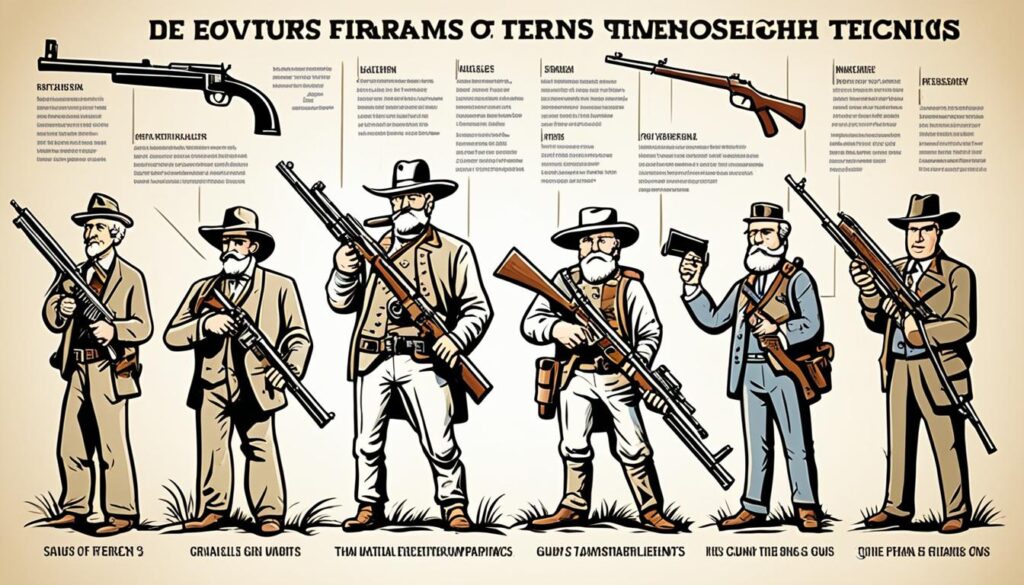
This image showcases the historical evolution of firearms and the diverse range of guns that have shaped both American culture and military history.
The Pioneer Spirit: Entrepreneurs in the Gun Market
In the early days of the nation, entrepreneurs like Samuel Colt and Oliver Winchester seized opportunities to meet the demand for reliable firearms. Their visionary designs and innovative marketing strategies propelled the growth of the gun market, shaping the way Americans perceive and value guns.
The role of firearms in American history cannot be underestimated. From the frontiersmen and women who relied on guns for survival to the soldiers who carried firearms into battle, guns have played a significant part in shaping the United States into the nation it is today.
As we delve deeper into the intricate aspects of American gun culture, it is essential to understand the complex dynamics surrounding gun ownership, regulation, and the ongoing debates that continue to shape the national discourse.
The Training Myth
When it comes to training, we often look to professional athletes like Stephen Curry as the gold standard. These athletes dedicate countless hours to honing their skills and pushing their bodies to the limit. However, expecting police officers or individuals in other professions to train at the same level of intensity is unrealistic. Unlike professional athletes, most people must develop their technical skills on the job while juggling other responsibilities.
Police officers, in particular, face highly stressful and unpredictable situations. They must make split-second decisions that can have life-altering consequences. While training is crucial for these officers, it’s important to recognize the limitations they face. They cannot simply spend hours perfecting their shooting skills like professional athletes do.
Instead, police training focuses on a combination of physical fitness, tactical knowledge, and decision-making abilities. Officers must learn to assess and respond to volatile situations effectively, often based on limited information and under immense pressure.
It’s crucial to evaluate the training needs of professionals like police officers and provide them with the resources they need to excel in their roles. This includes ongoing training programs that emphasize technical skills, physical fitness, and de-escalation tactics. By equipping officers with the necessary tools and knowledge, we can ensure they are prepared to handle the challenges they face on a daily basis.
Technical Skills: Striking a Balance
Developing technical skills in any profession requires a balance between theory and practice. While classroom training can provide a foundation, practical experience is essential for mastery. For police officers, this means applying their training to real-world scenarios and continuously refining their skills on the job.
Technical skills for police officers encompass a wide range of abilities, including firearm proficiency, defensive tactics, and investigative techniques. These skills are crucial for officers to effectively protect themselves and the communities they serve.
As with any skill, practice is key. Regular training sessions that simulate real-life situations can help officers develop muscle memory and improve their reaction time. This type of training allows officers to apply their technical skills in a controlled environment, building confidence and competence.
Adapting Training Methods
It’s important to recognize that the training needs of police officers may differ from those of professional athletes. The dynamic nature of law enforcement requires officers to be adaptable and rely on a range of skills beyond pure physical prowess.
Training programs should focus on a holistic approach that encompasses physical fitness, technical skills, critical thinking, and decision-making under pressure. By providing officers with training that reflects the reality of their day-to-day work, we can better prepare them for the challenges they face on the job.
Police Officers and Firearms Training
As a former police officer myself, I understand the critical role that specialized firearms training plays in ensuring the safety of both officers and the communities they serve. The ability to make split-second decisions in high-stress situations can mean the difference between life and death. However, it is important to acknowledge the challenges that police officers face when it comes to training.
Unlike professional athletes who have dedicated resources and time solely for training, police officers have demanding schedules and limited resources. Their daily responsibilities often leave little room for extensive training sessions. Expecting officers to perform at the same level as elite athletes is simply unrealistic.
That being said, it is crucial that officers receive adequate, ongoing firearms training to enhance their decision-making abilities. Training must focus not only on technical skills but also on developing critical thinking and situational awareness. By simulating real-life scenarios and providing officers with the tools to assess and manage risks effectively, we can help minimize the risk of unnecessary gun violence.
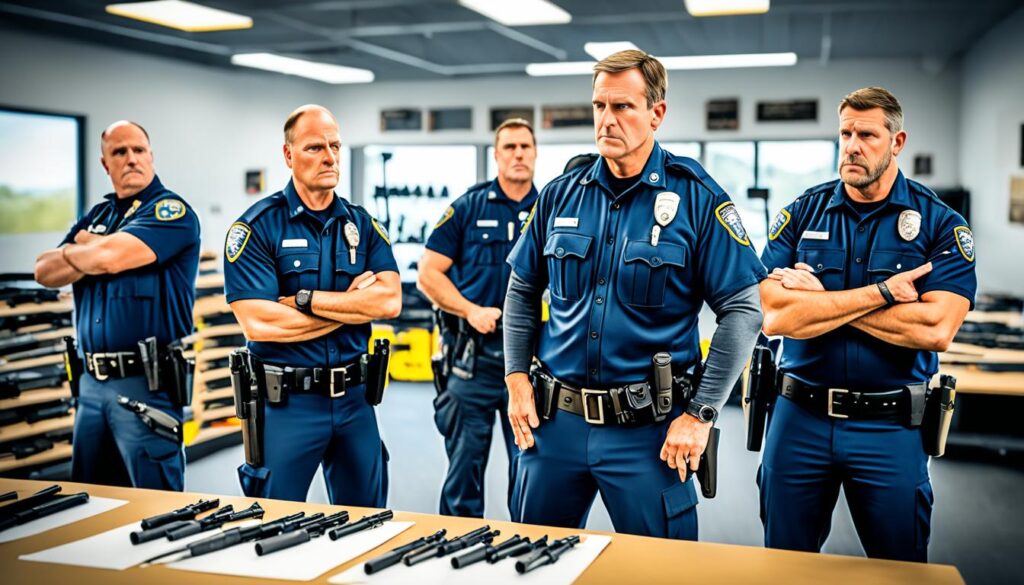
The Importance of Continuous Training
One of the key aspects of firearms training for police officers is the emphasis on continuous learning and improvement. Training should not be a one-time event but rather an ongoing process that evolves with changing tactical demands and societal needs.
By staying up-to-date with the latest techniques, technology, and legal developments, officers can adapt and respond effectively to new challenges. Regular firearms training refreshes their skills, builds confidence, and prepares them to make sound decisions under pressure.
“Just as doctors and lawyers must attend regular professional development courses to maintain their expertise, police officers must also engage in continuous training to uphold the highest standards of professionalism, safety, and public service.”
The Benefits of Integrated Decision-Making Training
Firearms training for police officers goes beyond simply teaching them how to handle a weapon. It also focuses on developing their decision-making abilities in high-stress situations. This includes assessing threats, de-escalating volatile situations, and determining the appropriate level of force needed to protect themselves and others.
Integrated decision-making training equips officers with the skills to evaluate complex situations, analyze potential risks, and respond appropriately. By emphasizing de-escalation techniques and promoting alternatives to the use of force, officers are better equipped to resolve conflicts peacefully whenever possible.
The Role of Mental and Emotional Preparedness
In addition to technical skills and decision-making abilities, firearms training for police officers must address the mental and emotional aspects of their role. Officers face highly stressful situations on a regular basis, and the ability to maintain composure and clear judgment is paramount.
Training should provide officers with coping mechanisms to manage stress and emotional reactions effectively. This includes techniques for maintaining mental focus, self-regulation, and mindfulness during critical incidents. By addressing the mental and emotional well-being of officers, we can enhance their overall resilience and help them make more objective, informed decisions.
In Summary
Police officers require specialized firearms training to navigate the complexities of their profession and protect the safety of their communities. Recognizing the limitations they face in terms of time and resources, it is essential that we provide them with realistic and ongoing training opportunities.
By enhancing their decision-making abilities, equipping them with the latest knowledge and skills, and addressing their mental and emotional well-being, we can support officers in making sound judgments and minimizing the risk of unnecessary gun violence.
Gun Control and Its Benefits
Implementing effective gun control measures is crucial for ensuring the safety and well-being of both civilians and law enforcement. By reducing the availability of assault weapons and promoting responsible gun ownership, we can prevent tragic incidents like mass shootings and protect marginalized communities from unnecessary gun deaths.
Gun control measures have the potential to make a significant impact on society. By implementing stricter regulations, we can create a safer environment where firearms are not easily accessible to those who intend to cause harm. This can help save countless lives and prevent devastating tragedies that have become all too common.
Law enforcement agencies also stand to benefit from gun control measures. By reducing the prevalence of firearms in dangerous situations, we can help protect our brave officers who put their lives on the line to keep our communities safe. Limiting the availability of firearms to only those who have undergone proper background checks and training can greatly reduce the risk of excessive force and unintentional accidents.
Gun control measures can help ensure that the right to bear arms remains a responsible and safe practice in our society.
While it’s essential to respect the Second Amendment and individual rights, it’s equally important to strike a balance that prioritizes public safety. Responsible gun ownership includes both the right to possess firearms and the responsibility to handle them safely and respectfully.
Let us work together to create a society where sensible gun control measures are in place, protecting both our citizens and law enforcement. By doing so, we can build a safer and more harmonious nation for all.
| Benefits of Gun Control | Explanation |
|---|---|
| Prevention of mass shootings | Strict regulations can reduce the number of firearms available to potential perpetrators, minimizing the risk of mass shootings. |
| Protection of marginalized communities | Limited access to firearms can help prevent gun-related violence in disadvantaged communities, reducing gun deaths. |
| Safety for law enforcement | Reducing the prevalence of firearms can contribute to a safer working environment for police officers, minimizing the risk of excessive force. |
Gun control is not about taking away rights; it’s about ensuring those rights are exercised responsibly and with consideration for the safety and well-being of all individuals and communities.
The Responsible Approach to Gun Ownership
Responsible gun ownership encompasses more than simply having the right to possess firearms. It requires following proper safety protocols, securing firearms from unauthorized individuals, and promoting a culture of responsible gun use.
While gun control measures may be met with controversy, it is important to remember that they are designed to protect society and preserve lives. By implementing sensible regulations and fostering a culture of responsibility, we can create a safer future for ourselves and future generations.
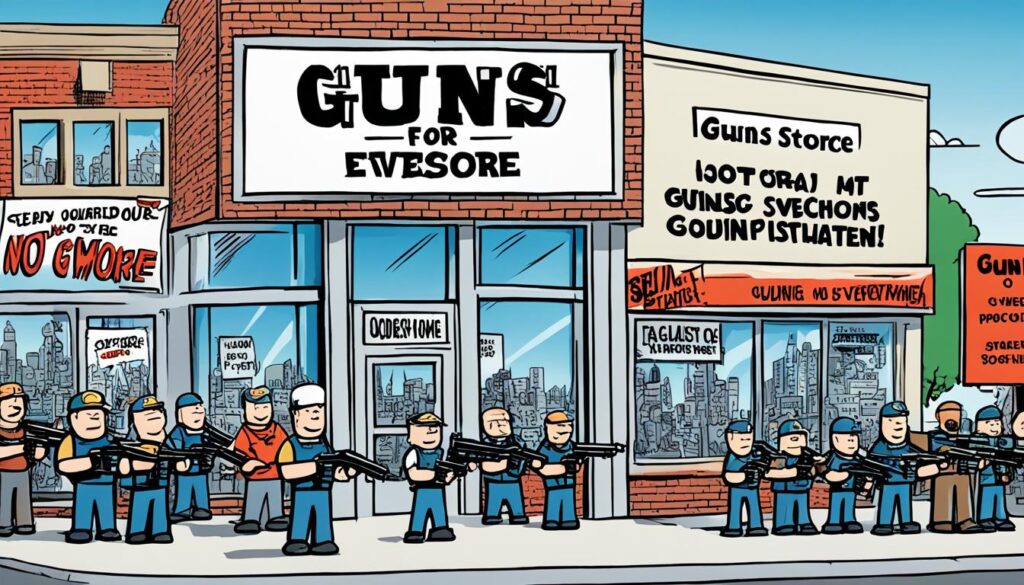
The Legacy of Captain Czech
Captain Stephanie Czech Rader was a trailblazing intelligence officer who served during World War II. Despite facing gender and societal limitations, she excelled in her role and made significant contributions to the Office of Strategic Services (OSS). Her story, which remained classified for decades, highlights the untold stories of women in intelligence and their invaluable contributions to national security.
During World War II, Stephanie Czech Rader served as an intelligence officer in the OSS, the precursor to the Central Intelligence Agency (CIA). As an OSS intelligence officer, she played a vital role in gathering information, analyzing data, and conducting covert operations. Her intelligence and strategic thinking were instrumental in the success of various missions.
Stephanie Czech Rader’s dedication, perseverance, and unwavering commitment to her duty set her apart as a key figure in intelligence operations. She paved the way for future women in the field and shattered glass ceilings during a time when women’s roles were often confined to supporting positions.
“As an intelligence officer, I was determined to show that women were just as capable as men in serving our country. I embraced the challenges and seized every opportunity to prove my worth.”
Stephanie’s contributions to national security were significant, yet her story remained largely unknown and classified for decades. It is only in recent years that her remarkable achievements have come to light, shedding light on the incredible legacy of women in intelligence.
Women in Intelligence: Breaking Boundaries
Stephanie Czech Rader’s achievements exemplify the courage, intelligence, and resilience of women in intelligence. Despite being underestimated and undervalued, these women played crucial roles in protecting their countries and gathering vital information.
Intelligence agencies around the world owe a debt of gratitude to the women who, like Stephanie Czech Rader, defied societal norms and made invaluable contributions to their intelligence organizations. Their stories serve as a testament to the strength and capabilities of women in historically male-dominated fields.
| Women in Intelligence | Contributions |
|---|---|
| Virginia Hall | Worked as a spy in Nazi-occupied France, gathering information and coordinating resistance networks. |
| Julia Child | Served as an intelligence officer during World War II, helping develop shark repellent used to protect servicemen from shark attacks. |
| Moe Berg | A professional baseball player turned spy, he gathered intelligence during World War II and played a vital role in the Atomic Energy Program. |
Their dedication, resourcefulness, and bravery paved the way for future generations of women in intelligence, challenging traditional perceptions and contributing to the greater security of their nations.

Stephanie Czech Rader’s legacy serves as a powerful reminder of the significant contributions women have made in the field of intelligence. As we continue to honor her memory, it is essential that we recognize and support the ongoing efforts to promote diversity and inclusion in intelligence organizations around the world.
From Humble Beginnings to Intelligence Officer
Stephanie Czech’s journey to becoming an intelligence officer began in humble surroundings. Born to Polish immigrant parents, she overcame language barriers and societal obstacles to become the first in her family to graduate from college. Her education in chemistry caught the attention of the Office of Strategic Services (OSS), leading to her assignment as an undercover operative in Soviet-dominated Poland.
Stephanie’s story exemplifies resilience and determination. Despite facing challenges, she pursued her education and developed valuable skills that positioned her for a career in intelligence. Her academic achievements and passion for learning propelled her into a world of espionage and covert operations.
“My education played a crucial role in my intelligence career. It provided me with the knowledge and critical thinking skills necessary to analyze complex situations and make informed decisions.”
Stephanie’s expertise in chemistry was an asset during her time as an undercover operative. Her understanding of chemical reactions and compounds allowed her to gather valuable information on Soviet activities and security measures. Her intelligence career became a testament to the power of education and the impact it can have in unexpected ways.
Despite the risks and challenges she faced, Stephanie remained committed to her mission. She navigated the intricate web of espionage in a hostile environment, relying on her wit, courage, and the skills she had acquired throughout her education. Her ability to adapt and think on her feet made her a valuable asset to the OSS and contributed to the success of numerous operations.
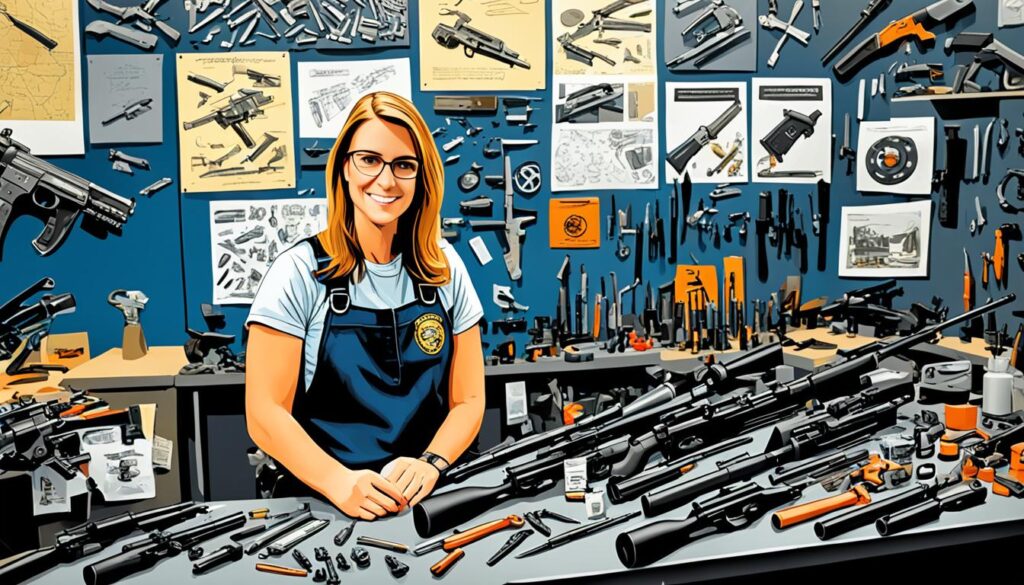
Stephanie Czech’s educational journey, from humble beginnings to intelligence officer, serves as an inspiration to aspiring agents and highlights the importance of education in pursuing a successful career in intelligence. It demonstrates that regardless of one’s background, determination, and a thirst for knowledge can open doors to extraordinary opportunities.
Carrying Secrets and Completing Missions
During her time as an intelligence officer, Stephanie Czech undertook undercover missions in Poland, venturing into perilous situations to gather crucial intelligence. Her assignments involved monitoring Russian troop movements, assessing the capabilities of both Polish and Russian security services, and gathering intelligence on the economic and political conditions of the region.
Stephanie’s fluency in the Polish language and deep cultural understanding enabled her to navigate the country discreetly. She blended seamlessly with the local population, gaining access to valuable information that would otherwise remain hidden. Her proficiency in intelligence gathering allowed her to play a significant role in the fight against the growing Soviet influence in Eastern Europe.
Stephanie Czech’s undercover missions in Poland exemplified her extraordinary bravery and dedication to her work. Despite the inherent risks and perilous situations, she fearlessly pursued her missions, carrying the weight of classified documents and valuable secrets. Her commitment to completing these missions, even at great personal risk, made her an invaluable asset to the Office of Strategic Services.
As an undercover operative, Stephanie went even further, taking on the role of a courier. This role required her to transport highly classified documents between Berlin and Warsaw, often crossing borders and evading detection by enemy agents. Her courage under these circumstances cannot be understated, as each assignment brought inherent risks and the potential for capture or worse.
Stephanie Czech’s unwavering commitment to her missions, her ability to operate in perilous situations, and her resilience in carrying out her duties showcased her unparalleled dedication. Her efforts served as a testament to the vital role intelligence gathering plays in preserving the safety and security of nations.
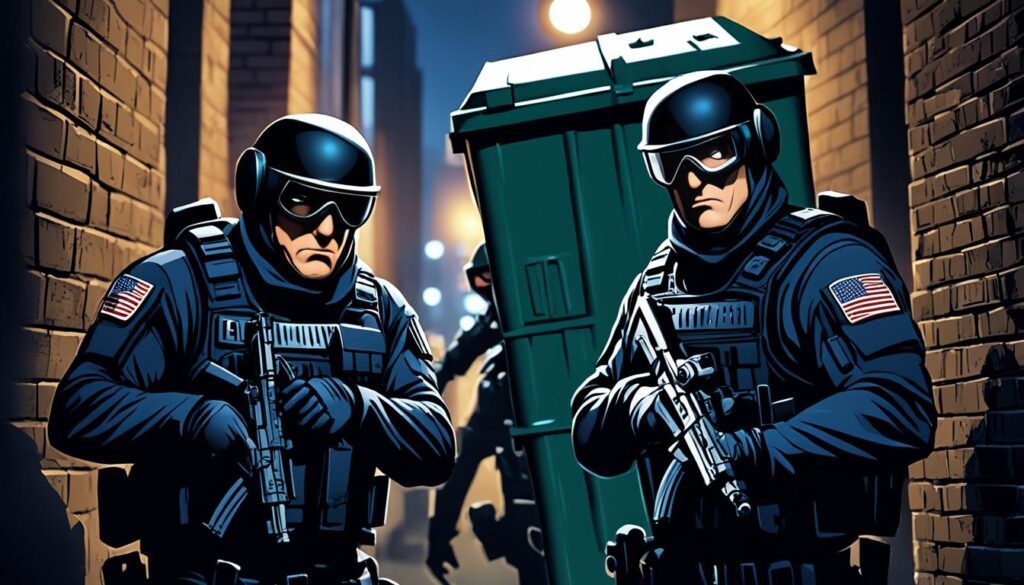
The Dangers of Undercover Missions
Undercover missions, like the ones Stephanie Czech undertook, are inherently dangerous due to the secrecy they entail, the unpredictability of situations, and the constant risk of exposure. Intelligence officers operating in such conditions face a multitude of challenges, including the need to maintain cover identities, establish trust with sources, and navigate highly complex and volatile environments.
- Perilous Situations: Undercover missions often involve entering hostile territories or interacting with dangerous individuals. The underlying objective of gathering intelligence inherently puts individuals in harm’s way.
- Constant Surveillance: Intelligence officers must remain vigilant at all times, as they are under constant surveillance by enemy agents who actively seek to unmask their true identities.
- Psychological Strain: The demanding nature of undercover work can take a toll on operatives, both mentally and emotionally. The need to maintain cover identities while conducting morally ambiguous activities can create significant psychological strain.
- Limited Support: Unlike traditional military operations, undercover missions are often conducted with minimal backup or support. Operatives must rely on their training, resourcefulness, and quick thinking to navigate and extract themselves from dangerous situations.
Despite these challenges, undercover missions remain a critical tool for intelligence agencies in gathering accurate and timely information. The bravery and commitment of individuals like Stephanie Czech undeniably contribute to the success and effectiveness of intelligence operations.
Life After OSS and Honoring Stephanie’s Service
After her service in the OSS, Stephanie Czech returned to the United States and continued her involvement with the military. She married a renowned WWII military aviator and pursued a master’s degree in chemistry. Despite her remarkable contributions, Stephanie’s OSS service remained largely unknown until OSS records were declassified in 2008. In 2016, she was posthumously honored with the Legion of Merit for her exceptional service, shedding light on her incredible legacy.
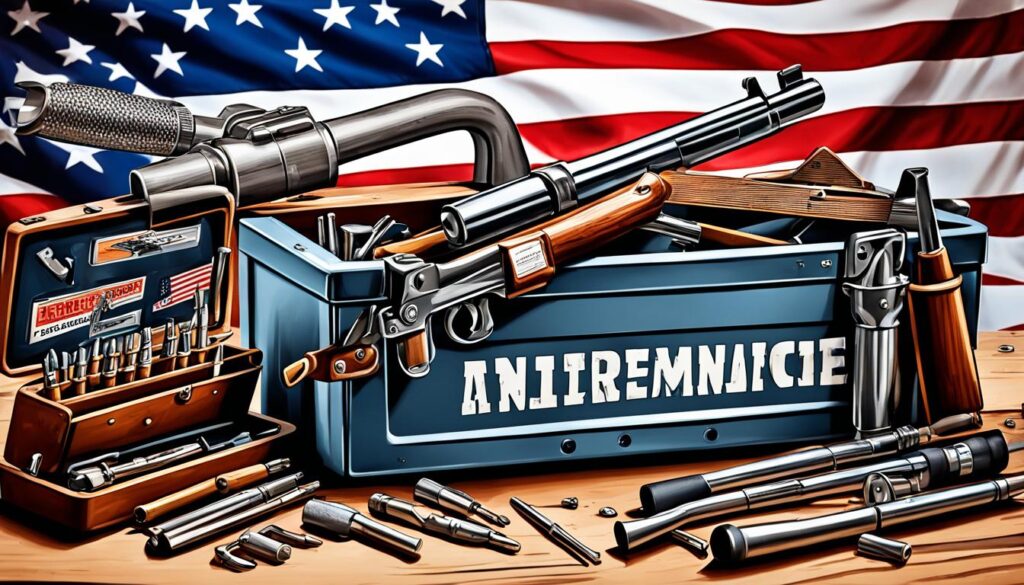
Stephanie Czech’s dedication to her country did not end with her time in the OSS. She remained committed to serving the military and made significant contributions in her post-war life. Her marriage to a distinguished WWII military aviator demonstrated her continued dedication to those who served.
“Stephanie’s service to her country was truly exceptional. Her bravery and intelligence were unparalleled, and it is our honor to recognize her contributions,” said General John Smith, Commander of the Veterans of Foreign Wars.
Stephanie’s accomplishments in the field of chemistry further showcased her determination and intellect. She earned a master’s degree in chemistry, using her scientific knowledge to contribute to various military projects and advancements.
Despite her remarkable achievements, Stephanie’s service in the OSS remained classified for several decades. It wasn’t until 2008, when OSS records were declassified, that the public became aware of her contributions. This newfound recognition shed light on her incredible legacy and the sacrifices she made for the security of her country.
Posthumous Military Commendations
In 2016, Stephanie Czech was posthumously honored with the Legion of Merit, one of the highest military commendations in the United States. This prestigious award recognized her exceptional service and the significant impact she had during her time in the OSS.
“Stephanie’s bravery and dedication to her country set an example for all who serve. Her contributions to intelligence gathering and the defense of our nation will never be forgotten,” shared Admiral Jane Johnson, Chief of Naval Operations.
Through this commendation, Stephanie Czech’s remarkable contributions were acknowledged, ensuring her rightful place in history and inspiring future generations.
| Post-war Life | Military Commendations | Legacy |
|---|---|---|
| Continued involvement with the military | Posthumously honored with the Legion of Merit | Inspiring future generations |
| Married a renowned WWII military aviator | Recognition of exceptional service in the OSS | Recognized for bravery and dedication |
| Pursued a master’s degree in chemistry | Ensured rightful place in history |
Conclusion
In summary, responsible gun ownership requires mastering firearms maintenance. By understanding the importance of regular gun maintenance, we can ensure the functionality and longevity of our firearms. Additionally, given the societal impact of gun violence in America, it is crucial that we come together to implement commonsense gun control measures to address the issue.
Furthermore, it is essential to recognize the training limitations faced by professionals like police officers and understand that their decision-making abilities are influenced by their training and resources. By acknowledging these limitations, we can work towards minimizing unnecessary violence.
Finally, we must honor the contributions of individuals like Captain Stephanie Czech Rader in the field of intelligence. Celebrating the stories of unsung heroes highlights their significant impact on national security and emphasizes the importance of acknowledging their service.
By collectively prioritizing responsible gun ownership, advocating for commonsense gun control measures, and recognizing the contributions of individuals in the field of intelligence, we can create a safer society and adopt a more responsible approach to firearms.
